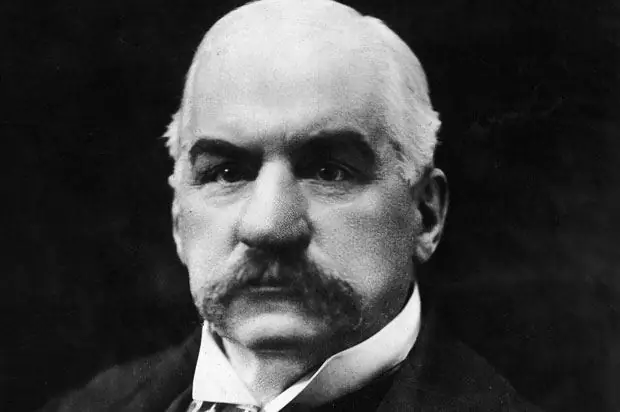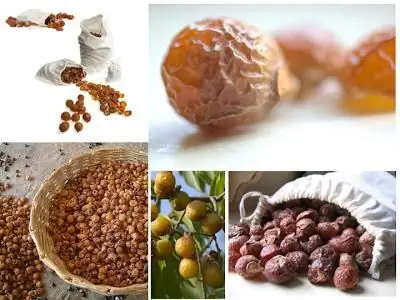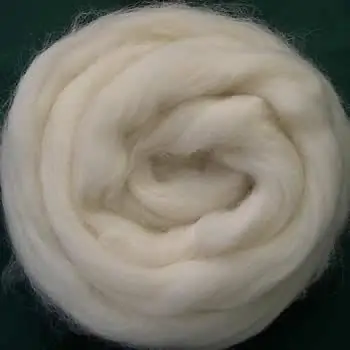2026 Author: Priscilla Miln | miln@babymagazinclub.com. Last modified: 2025-01-22 17:55:24
It just so happened that each country has its own, so to speak, calling card. For France, for example, these are Champagne wines, Chanel fragrances and, of course, the world-famous Marseille soap, which has a thousand-year history.
From Aleppo across Europe
That's exactly what you can say about the brownish-greenish bars of soap that appeared in France as early as the 12th century. A washing and laundry detergent made from olive oil and laurel was brought from Syria by the crusaders. Soon the Europeans themselves were engaged in the manufacture of their favorite goods, and the French were especially successful in this, replacing the laurel with fragrant Provencal herbs. Briefly, the history of the formation and development of soap making in this country can be represented as follows:

- 1370 - the first officially registered soap maker appeared in Provence. They became K. Davin, who used in addition to oil and herbsashes from plants grown in highly saline soils.
- 1593 - J. Prunemoy opened the first factory for the production of Marseille soap. After 67 years, the number of such enterprises was already 7, but even their products (more than 20 thousand tons per year) were not enough to fully cover the population's demand for goods.
- 1688 - the king assigned the name "Marseilles" to the soap produced in Provence. And he immediately pointed out that it should consist exclusively of vegetable oil, in particular, olive oil from Provence. The use of animal fats turned out to be under a strict ban, the violation of which entailed the confiscation of all the property of the unfortunate soap maker.
- 1789 - 49 factories for the production of fragrant Marseille soap are already operating in Marseille. It is known that Catherine the Great used it with pleasure, which led to the introduction of special amendments to the agreement between the two countries and a significant reduction in duties when importing this product from France to Russia.

The end of the 18th - the beginning of the 19th century became a new stage for French soap makers in the production of a popular laundry detergent. At this time, the chemist N. Leblanc invented a new method for producing soda - an essential component in the composition of Marseille soap. It did not contain more vegetable ash, which made it possible to significantly increase the production of detergent and at the same time reduce its cost. A little later, cheaper oils from the southern continents began to be imported to Europe, which also played into the hands of Marseille soap makers - they began to be usedalong with Provencal olive oil.
Hard Times
Some decline in the production of Marseille soap began to be observed in the XX century. At first, this was due to the participation of France in the First and Second World Wars, and then with the rapid development of the chemical industry and the emergence of a new detergent - washing powder. Nevertheless, Marseille soap, reviews of which remain extremely positive in our time, continue to be used by many inhabitants of the entire globe. Fortunately, today you can buy original goods from France without much difficulty in almost any corner of the world.

What is the reason behind the continued popularity of this detergent and how to determine its authenticity?
The secret of Marseille soap success
The requirements for the composition, formed at the time of its inception, remain unchanged to this day. And although French craftsmen have kept the production features and composition of real Marseille soap a strict secret for several centuries, the basic requirements for it are still known. Here they are:
- allow no more than 6 components to be produced;
- provide a formulation with 72% vegetable oils;
- completely eliminate the use of animal fats, preservatives, dyes.

In addition, a real remedy from Marseilles is traditionally made in the form of a cube (although recently one can often see the so-calledMarseille liquid soap in bottles). Its characteristic features are typical stamping on all sides and natural color. Its shades can vary from brownish-greenish to yellowish-white, depending on the type of oil used in the manufacture of the detergent.
Keeping Traditions
Currently, there are 4 large enterprises left in France, continuing the production of genuine Marseille soap for washing and washing. Their work is regulated by the Charter of Quality signed in 2011, which describes the technology for the production of goods and fixes the geographical origin established many centuries ago. It also protects Marseille soap makers from possible fakes and guarantees the preservation of centuries-old traditions.

Main competitor of Marseille soap
It should be noted that Castile soap appeared almost simultaneously with French soap. This is also a natural product, since it is also made only from vegetable oils. The main difference is in price: Castilian is much more expensive than Marseille. The reason is simple: in Castile, only extra virgin olive oil is used for soap, while Marseille soap makers use cheaper, but in no way inferior in useful properties, virgin olive oil.
Use area
Detergent, including the concentrated gel of the famous brand Meine Liebe "Marseille soap" can wash any fabric, except, perhaps, natural - wool and silk. As time has shown, this wonderful naturalThe product successfully copes even with persistent pollution. At the same time, it does not cause irritation of the skin and allergies, and therefore, it is quite suitable for washing both outerwear and underwear or children's clothes.
Recommended:
The Morgan Dynasty: history of occurrence, interesting facts, life path

Dynasties… Many people associate this word with kings and roy alty in robes, with attributes of state power… But the article will talk about a dynasty of a different kind, maybe not so ancient, but no less powerful. We will talk about the names of the great entrepreneurs and businessmen of the era of classical capitalism. So, who are the Morgans and how did they become famous?
Soap nuts: reviews. Soap nuts for hair

Many people know firsthand about the harm caused to hair and skin by modern cosmetics, and intuitively strive to oppose artificial "chemistry" with something natural, created by nature and useful. One such common alternative is soap nuts. The reviews of those who have tried them are the most amazing, because they are used not only as store-bought shampoos, but also as masks and even for washing
Buttons: history of occurrence, types, application. Golden button. clothing details

When going to work, study or walk every day, we do not attach much importance to the buttons on our clothes. They have become such a familiar and everyday accessory that sometimes you just don’t notice them and fasten them by inertia. But the history of the button is very interesting and rich
Merino wool and its products: the secret of success

In the wardrobe of every self-respecting modern person there should be at least one thing, which would include merino wool. Such products look especially elegant. They do not wrinkle and wear well - they do not rub, do not give spools. And merino wool has amazing properties. What? Read about it in our article
Apple Day - the history of occurrence and the scenario of the matinee

Perhaps many have heard of Halloween, Mother's Day, St. Valentine, which has long been celebrated not only in the UK, but also far beyond its borders. However, not everyone knows about such an interesting and “tasty” holiday as Apple Day, which is celebrated annually on October 21 in Britain

